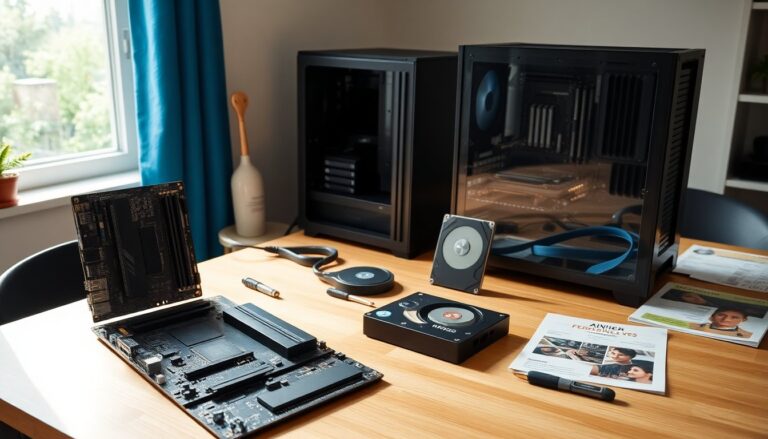Argomenti trattati
Building a budget gaming PC can be an exciting yet challenging endeavor. The rapid evolution of technology provides numerous options that may overwhelm even experienced gamers. However, understanding essential components and their interrelations can lead to a remarkable gaming setup without excessive expenditure. This article examines the most effective components for creating a cost-effective gaming rig.
Key components for a budget gaming PC
When assembling a budget gaming PC, focus on critical components such as the CPU, GPU, RAM, and storage. Each part significantly influences overall performance. Selecting components that offer the best value ensures a smooth gaming experience.
Choosing the right CPU
The central processing unit (CPU) serves as the brain of the computer. For a budget gaming build, consider processors like the AMD Ryzen 5 5600G or the Intel Core i5-12400. These CPUs provide an excellent balance between price and performance, making them suitable for gaming and multitasking. They also feature integrated graphics, beneficial for those on a tight budget unable to invest in a dedicated graphics card.
Graphics card selection
The graphics processing unit (GPU) is arguably the most crucial component for gaming. A quality GPU ensures smooth gameplay with high frame rates. Budget-conscious gamers might consider options like the NVIDIA GeForce GTX 1650 or the AMD Radeon RX 6500 XT, which deliver excellent performance for 1080p gaming. Investing in a reliable GPU enhances the gaming experience, allowing enjoyment of modern titles without lag.
Memory and storage considerations
RAM is another essential component affecting system performance. For a budget gaming PC, a minimum of 16GB of RAM is advisable. This capacity allows for smooth multitasking and ensures games run without stuttering. Brands such as Corsair and G.Skill provide reliable and affordable options suitable for most budgets.
Storage solutions
When considering storage, the choice between a solid-state drive (SSD) and a hard disk drive (HDD) significantly impacts your build. While SSDs offer faster speeds and greater reliability, they are often more expensive per gigabyte. A practical strategy for budget builds involves using a smaller SSD (approximately 500GB) for the operating system and frequently played games, combined with a larger HDD (around 1TB) for additional storage. This setup provides quick load times while allowing ample space for your library.
Power supply and cooling systems
Do not overlook the power supply unit (PSU), which is crucial for delivering stable power to your components. A PSU with an efficiency rating of at least 80 PLUS Bronze is recommended. Brands like EVGA and Corsair offer reliable options that are budget-friendly.
Lastly, consider a basic cooling system to maintain optimal component performance. Many CPUs come with stock coolers; however, investing in an aftermarket cooler can enhance performance, particularly during prolonged gaming sessions. Brands like Cooler Master and Noctua provide affordable yet effective cooling solutions.

